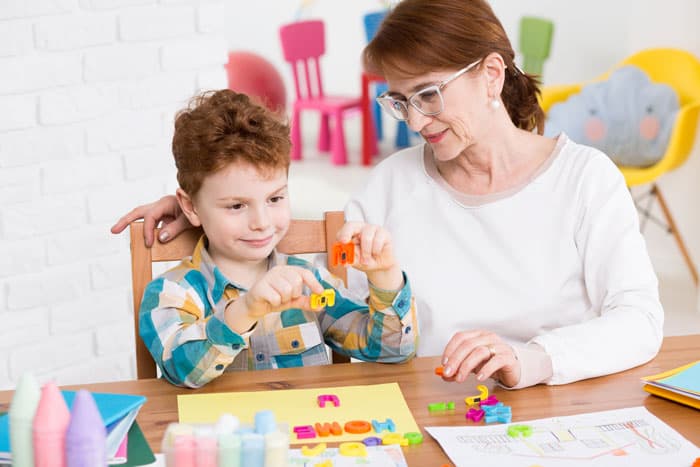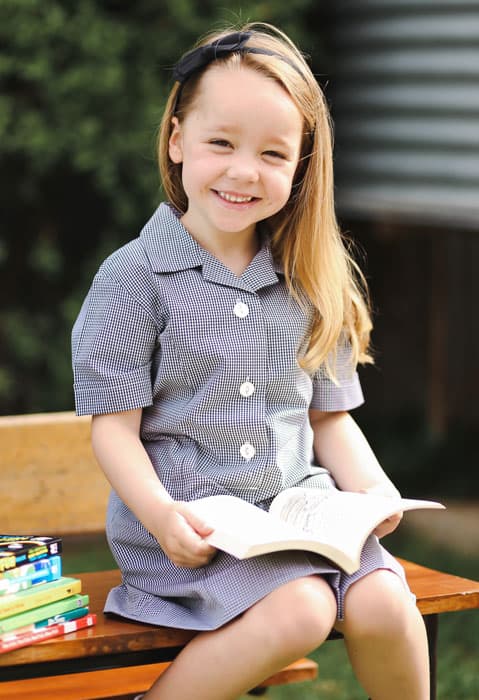


How Kids Learn to Read in Kindergarten

Kindergarten is a huge milestone for young children heading to ‘big school’, and their parents too! Learning to read is undoubtably one of the most important skills focused on in Kindergarten. It sets kids up with the foundations of critical reading skills, which become the key to their future academic success – across all subjects.
Read on to learn about three of the most fundamental reading skills your child will learn in Kindergarten.
Phonemic Awareness
Phonemic awareness is the very first step towards becoming a reader.
Kindergarten children are taught to hear, identify and manipulate individual sounds in words that are spoken. These individual sounds are called phonemes, for example, the word ‘cat’ is made up of three phonemes – '/c/' '/a/' '/t/'.
Once kids grasp this idea, they can use the phonemes as building blocks to make new words.
By developing phonemic awareness, children are also developing critical listening skills. Being able to manipulate phonemes builds phonemic awareness skills, which when combined with phonics, rapidly increases a child’s bank of readable words.
Phonics Skills
Phonics has become a buzzword with good reason!
Many school curriculums and educators are placing more emphasis on its importance for children learning to read successfully.
This has also been reinforced by the Science of Reading, a collective focusing on researching and coming up with the best learning practices for readers.
Developing phonics skills is closely related to phonemic awareness.
Phonics is the link between individual sounds, or phonemes, and letters of the alphabet.

Reading Eggs is bursting with fun online activities to help your child build their phonemic awareness and phonics skills. Try it free for 30 days!
Understanding phonics skills is often one of the main stumbling blocks children face early on when learning to read.
Without adequate phonics skills, children are likely to have difficulty reading printed words.
Phonics instruction helps Kindergarten readers decode unfamiliar words they encounter.
Kindergarten kids learn how to use phonemes to blend words out loud. Practice with repetition and games helps solidify this skill.
Kindergarten children are also given decodable books and texts to read that match up with the phonic code they’ve been taught.

Learning sight words in Kindergarten
Some of the first words that Kindergarten children will need to learn and automatically recall are ‘sight words’. Sight words are words like ‘is’, ‘the’, ‘and’, ‘but’ that children need to learn ‘at sight’.
Most often sight words are phonetically irregular and their sounds do not always match up to their letters, which makes them difficult to spell out.
Kids are taught that the meaning of these high-frequency words depends heavily on the context in which they appear.
Sight word success with a free Reading Eggs trial!
The highly engaging, interactive Reading Eggs word games and activities are the perfect way for Kindergarten children to build their vocabulary of critical sight words. The sight words that kids learn in the program's lessons feature in the accompanying story books and nonfiction titles, helping children apply their knowledge to the actual act of reading.
With the first 100 high-frequency sight words making up more than 50% of primary level reading texts, learning to automatically read and recall sight words is one of the most crucial steps on the way to becoming a fluent reader.
Sight word games are a fantastic way to reinforce these sometimes-tricky words, keeping kids motivated while making learning to read fun.
What should my child know about reading before Kindergarten?

Help your Kindergarten child learn all five components of learning to read, with fun lessons, activities and games included in a Reading Eggs 30‑day free trial!
It’s easier than you think to give your child headed for Kindergarten a heads up with their reading!
Parents and carers are often kids’ first reading teachers, and there’s so much they can pick up from the time spent together before Kindergarten starts.
Strategies to help your child’s early reading skills as they get ready to start Kindergarten
Sing lots of nursery rhymes as they build phonemic awareness skills.
Provide alphabet books so your child learns to recognize letters.
Play sound games to help them identify letter sounds.
Show them the letters needed to write and read their name.
Get them to practise their listening skills while reading books together. Ask them questions about the book to make sure they comprehend.
Download our free kindergarten worksheets to support your child's home learning and kindergarten readiness.
For more easy ideas about how you can get your child on the right reading track for Kindergarten, check out this helpful article, How to Teach Kids to Read at Home.
Of course, online programs like Reading Eggs are also fantastic at helping prepare kids for Kindergarten, teaching reading basics and much more, while building kids’ confidence and easing 'big school' anxiety.
Have soon-to-be Kindergarten kids? Some of these skills can help with school readiness
Know some or most of the letters of the alphabet
Know the sounds that letters make
Recognize upper- and lower-case letters
Know how to ‘use’ books, by holding and turning pages
Know books are read from left to right and up to down.
Get your child reading-ready for Kindergarten with a free Reading Eggs trial!
It might seem there’s a lot that kids need to learn before Kindergarten, but Reading Eggs makes learning all the essentials EASY and FUN! Bursting with games, activities, read-aloud books and rewards they’ll be on track with key reading skills before school starts. Start your 30-day free trial today!






